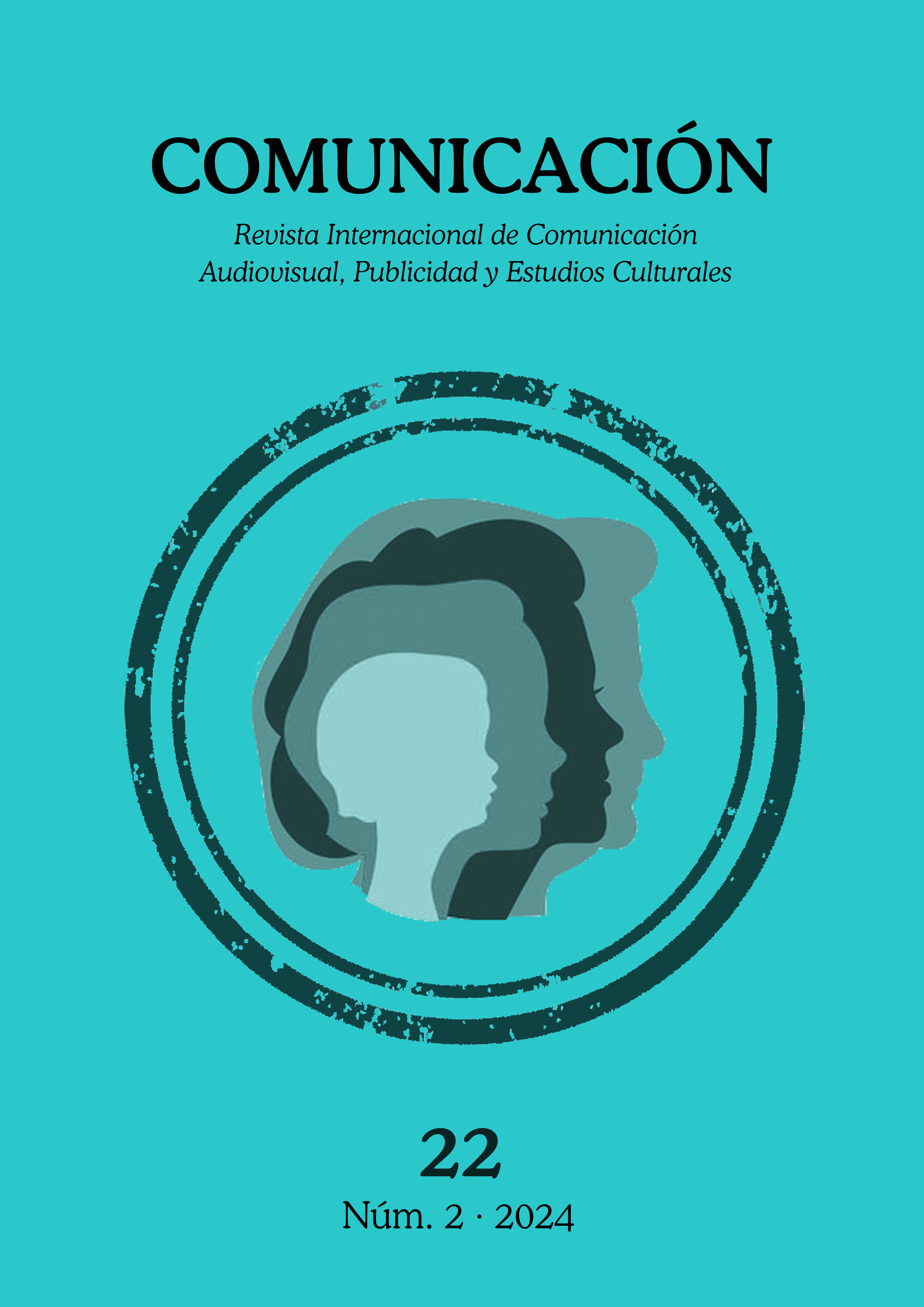Abstract
Music is one of the most important tools for creating and accompanying a tourism spot that is promoted on digital platforms such as YouTube. In fact, within all the audiovisual elements that make up the structure of the video format of this social network, music has the virtue of leading and describing the images that appear in it. Thus, it transcends its "traditional" role to become a narrative force that enhances the visual sequences presented. This synergy between the musical component and the visual content enriches the viewer's experience, strengthening, in turn, the message and the atmosphere of the spot. Therefore, the main objective of this study is to identify the types, uses and functions of music that are used to promote tourism in the city of Seville, all within the framework of a quantitative methodology of music-visual analysis of the six spots with the highest number of reproductions broadcast on the YouTube channel between 2020 and 2022 by Turismo Sevilla TV.
References
Calderón-Garrido, D., Gustems-Carnicer, J. y Martín-Piñol, C. (2017). Multimodalidad, emoción y publicidad. Un estudio empírico sobre YouTube. Icono 14, 15 (2), 25-48. https://doi.org/10.7195/ri14.v15i2.1041
Chion, M. (2017). La audiovisión. Sonido e imagen en el cine. La marca editora.
Dehghani, M., Khorram, M., Ramezani, I. y Sali, R. (2016). Evaluating the influence of YouTube advertising for attraction of young customers. Computers in Human Behavior, 59, 165-172. https://doi.org/10.1016/j.chb.2016.01.037
Gupta, H., Singth, S., y Sinha, P. (2017). Multimedia tool as a predictor for social media advertising - a YouTube way. Multimedia Tools and Applications. Multimed Tools Appl, 76, 18557–18568. https://doi.org/10.1007/s11042-016-4249-6
Hernández-Ramírez, J. (2008). La imagen de Andalucía en el turismo. Centro de Estudios Andaluces. Consejería de la presidencia.
Hijano del Río, M., Lasso de la Vega González, C., Ruiz-Morales, F. C., y Egea Fernández-Montesinos, A. (2006). La imagen de Andalucía en las guías turísticas. En Dos siglos de imagen de Andalucía (pp. 117-124). Fundación Centro de Estudios Andaluces.
Nieto, J. (2003). Música para la imagen. La influencia secreta. SGAE.
Osorio-Andrade, C.F., Rodríguez-Orejuela, A., y Moreno-Betancourt, F. (2021). Efectos de las características de videos en YouTube que aumentan su popularidad: un análisis empírico. Tendencias, Revista de la Facultad de Ciencias Económicas y Administrativas, 22(1), 18-38. https://doi.org/10.22267/rtend.202102.153
Pintado, T., y Sánchez, J. (2017). La relación entre el visionado y la evaluación del anuncio. Un análisis estructural de la publicidad no pagada en YouTube. Cuadernos.info, (40), 189-202. https://doi.org/10.7764/cdi.40.1088
Rodríguez, R. (2021). Cómo crear música publicitaria. Berenice
Rogers, H., Freitas, J., & Porfirio, J. F. (2023). YouTube and Music: Online Culture and Everyday Life. (New Approaches to Sound, Music and Media). Bloomsbury Academic. https://doi.org/10.5040/9781501387302
Román, A. (2008). El lenguaje musivisual. Semiótica y estética de la música cinematográfica. Visión Libros.
Román, A. (2017). Análisis musivisual. Guía de audición y estudio de la música cinematográfica. Visión Libros.
Salgado, E., Morejón, P., y Hernández, Y. (2021). Tendencias en la comercialización digital de las agencias de viajes en el escenario del COVID-19. Revista Internacional de Turismo, Empresa y Territorio, 5 (2), 131-145. https://doi.org/10.21071/riturem.v5i2.13747
Sánchez Rodríguez, V. (2015). Música y publicidad. Una aproximación metodológica al análisis músico-audiovisual de anuncios televisivos / Music and publicity. A methodological approach to music-audiovisual analysis of television spots. Vivat Academia, (133), 86–101. https://doi.org/10.15178/va.2015.133.86-101
Schafer, R. M. (1994). The soundscape: Our sonic environment and the tuning of the world. Destiny Books.
Sedeño, A. (2011). La música en los comerciales televisivos: el arma secreta. Sinfonía virtual, 18. https://goo.gl/EeTdIs
Sidorenko, P., y Garrido, P. (2021). Comunicación y publicidad del turismo sostenible en la construcción de la marca ciudad. El caso de la certificación internacional ‘Biosphere Tourism’ en España. Revista Mediterránea de Comunicación, 12(1), 15-28. https://www.doi.org/10.14198/MEDCOM000015
Sterne, J. (2012). The sound studies reader. Routledge
Tagg, P. (2013). Music’s meanings: A modern musicology for non-musos. The Mass Media Music Scholars’ Press.
Turismo Sevilla TV. [YouTube]. (10 de noviembre de 2021): Sevilla/Destino sostenible [Video]. https://www.youtube.com/watch?v=rHzJsytIzVQ&t=1s
Turismo Sevilla TV. [YouTube]. (15 de julio de 2022): Dear visitor [Video]. https://www.youtube.com/watch?v=6sCSXySXN3g
Turismo Sevilla TV. [YouTube]. (17 de mayo de 2021): Marca Sevilla [Video]. https://www.youtube.com/watch?v=SLsxSTOQDlM&t=1s
Turismo Sevilla TV. [YouTube]. (18 de enero de 2022): Hola mundo, soy Sevilla [Video]. https://www.youtube.com/watch?v=C6Wtzy0TNDg
Turismo Sevilla TV. [YouTube]. (23 de octubre de 2020): Sevilla tiene un sabor celestial… [Video]. https://www.youtube.com/watch?v=1tdxNLiRt9k
Turismo Sevilla TV. [YouTube]. (25 de septiembre de 2020): La Sevilla que hay en ti [Video]. https://www.youtube.com/watch?v=9P94JhGH2e0

This work is licensed under a Creative Commons Attribution-NonCommercial-ShareAlike 4.0 International License.
Copyright (c) 2024 Rafael Ángel Rodríguez López

